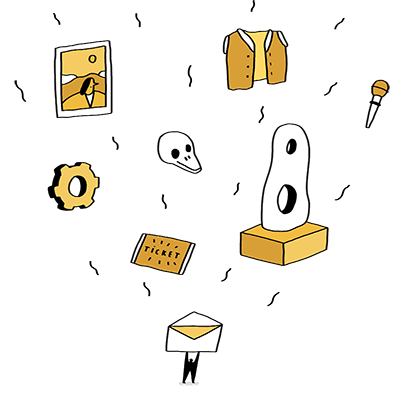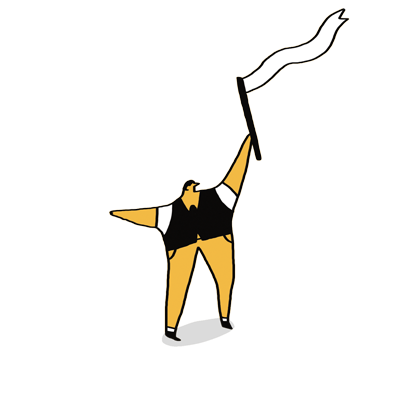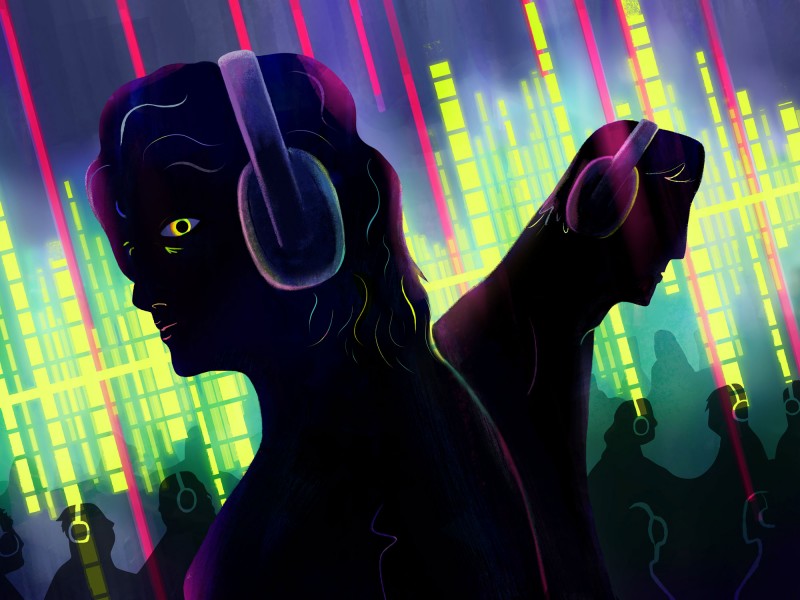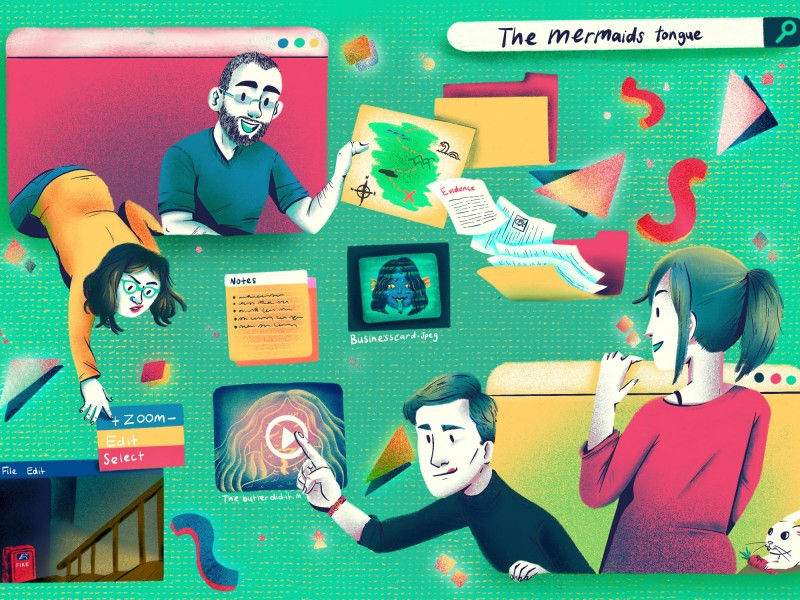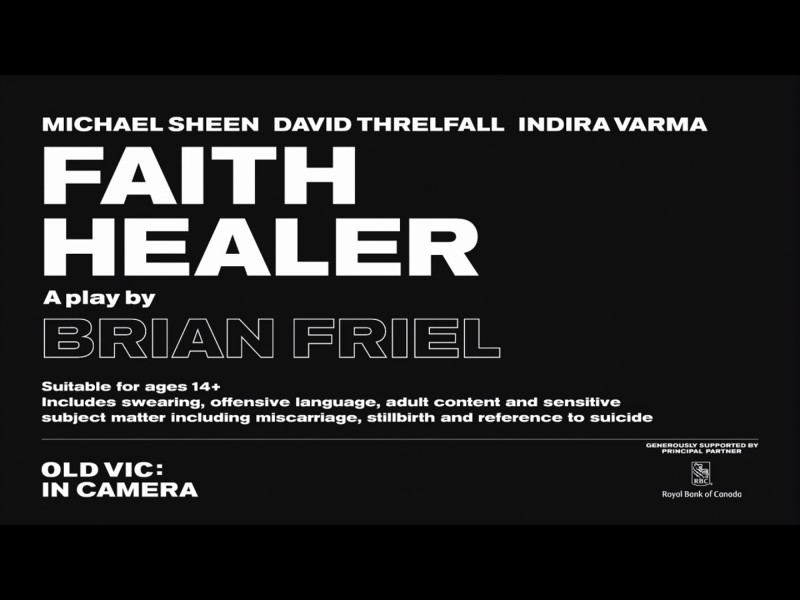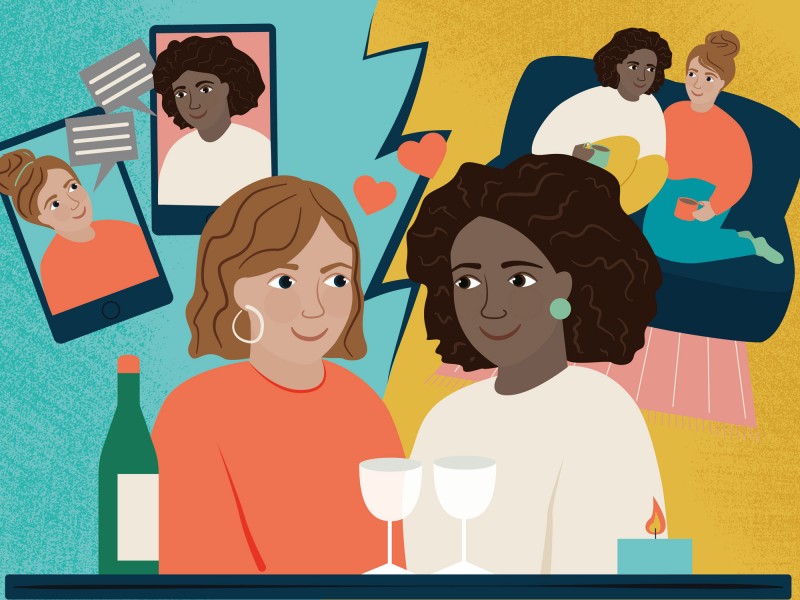We watched Riz Ahmed’s stunning lockdown show, hosted on Manchester International Festival’s CogPlayer, for our Cog Night in February.
The Long Goodbye: Livestream edition
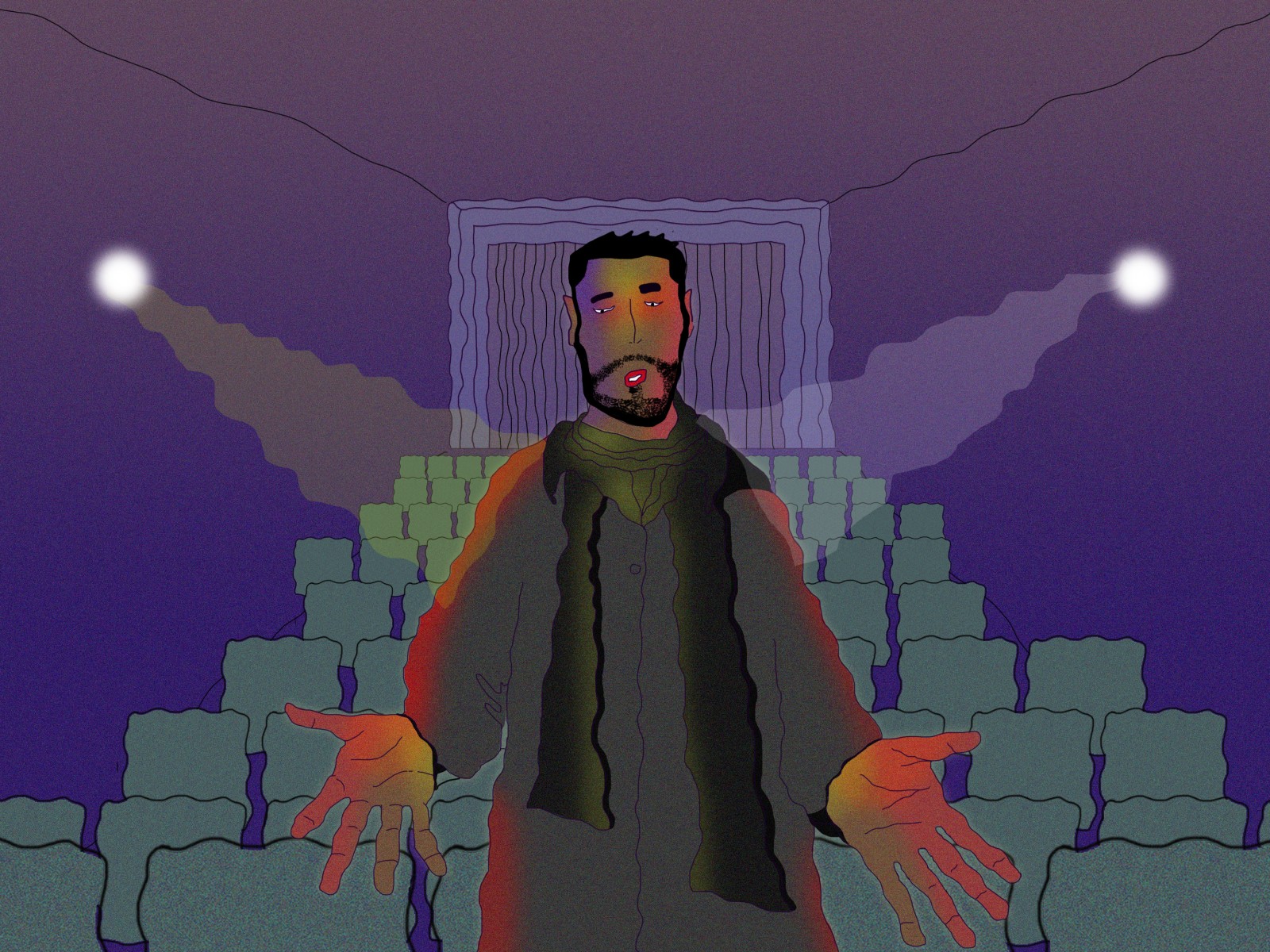
Riz Ahmed’s live music show of his new album, The Long Goodbye, was due to premier in Manchester back in March 2020. The live show didn’t go ahead for obvious reasons.
Instead Ahmed, in partnership with Manchester International Festival (MIF) and Brooklyn Academy of Music, developed a special digital performance, based on his album, that debuted in December 2020 and was later made available on-demand.
We worked with MIF to build a CogPlayer for the event, so we were thrilled to catch the on-demand show for our February Cog Night.

Like the album of the same name, the show examines ideas of home, belonging and structural racism. The ‘Goodbye’ in the title refers to the tortuous metaphorical break-up Ahmed has been going through with a Britain that has become an increasingly abusive partner.
That painful identity crisis is at the heart of Ahmed’s deeply personal performance, which weaves a lyrical web incorporating his own family history, the disproportionate impact of Covid-19 on people of colour in the UK, and the brutal legacy of British colonial rule.
The show begins with a low-tech feel: shaky and ad-hoc. Ahmed chats into a phone camera as he supposedly takes us through his pre-gig process in a deserted (and possibly haunted) theatre.
Performing to a handheld phone is a brilliant conceit. And as the illusion of spontaneity is broken by dazzling lighting and witty surreal special effects, the selfie monologue helps to maintain the intimacy.

Ahmed’s force of character and sheer brilliance ensures that our belief is suspended throughout. He squared the circle, making a show wrapped in layers of self-awareness and meta-theatricality, feel deeply personal and utterly performative at the same time.

The Long Goodbye: Livestream edition is a masterclass in Covid-era digital performance. It’s a show that’s been perfectly tailored for the kind of hybrid digital arts performance we’ve become more used to in the last year, and there was never a point where it felt like a play that was making do, or a gig that would have been better in-person. And the galling picture it paints of powerlessness in the face of exploitations packs a powerful punch.
Illustration by Serina Kitazono for our Cultural Calendar.
